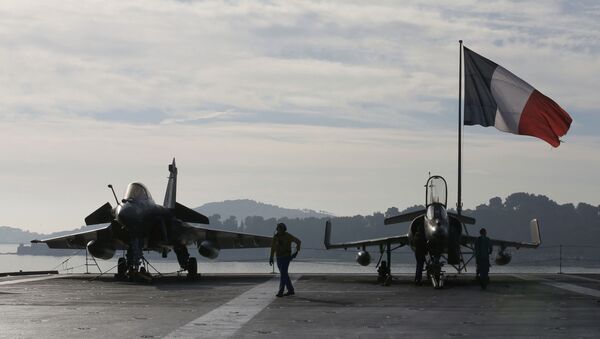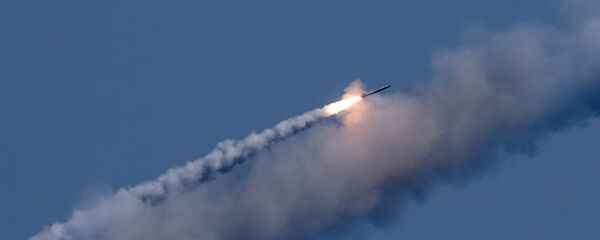The French Air Force has carried out a "rare" simulation of a nuclear strike involving a Rafale multirole fighter. The 11-hour mission, which included all phases of the nuclear attack mission, including refueling, featured the firing of the type of missile used in a real strike, French Air Force spokesman Col. Cyrille Duvivier has told Reuters.
"These real strikes are scheduled in the life of the weapons' system," Col. Duvivier said. "They are carried out at fairly regular intervals, but remain rare because the real missile, without its warhead, is fired," he added.
The French Foreign Ministry voiced its concern over the withdrawal, calling on Russia to use the six-month window to keep talks with the US open, and stressing that Paris remains committed to "arms control instruments, which help to ensure strategic stability."
On Monday, former French Foreign Minister Hubert Vedrine warned that the world risks entering an arms control "void" if Moscow and Washington don't replace the INF with a new arms control agreement.
Earlier, Russian Foreign Minister Sergei Lavrov said that all of Russia's proposals related to arms control remain on the table, adding that Moscow would not stoop to having to "remind our Western partners about them."
Each of the nuclear superpowers accused one another of violating the INF. The US has alleged that Russia violated the treaty by producing the 9M729 (SSC-8) missile, which Washington claims has a range of well over 1,000 km. Moscow says the missile's range doesn't exceed 480 km, well within the 500 km limit set forth by the INF. Russia has in turn accused the US of violating the INF by deploying components of its missile defence shield in Poland and Romania, with these systems said to be capable of fielding offensive ground-launched nuclear-capable cruise missiles. Washington has denied the allegations.
France is not a party to the INF, a 1987 arms limitation agreement between the United States and the Soviet Union (and later Russia) which obliged the two countries to eliminate their ground-based nuclear missiles in the 500-5,500 km range. The treaty was aimed primarily at reducing the risk of nuclear war in Europe.



